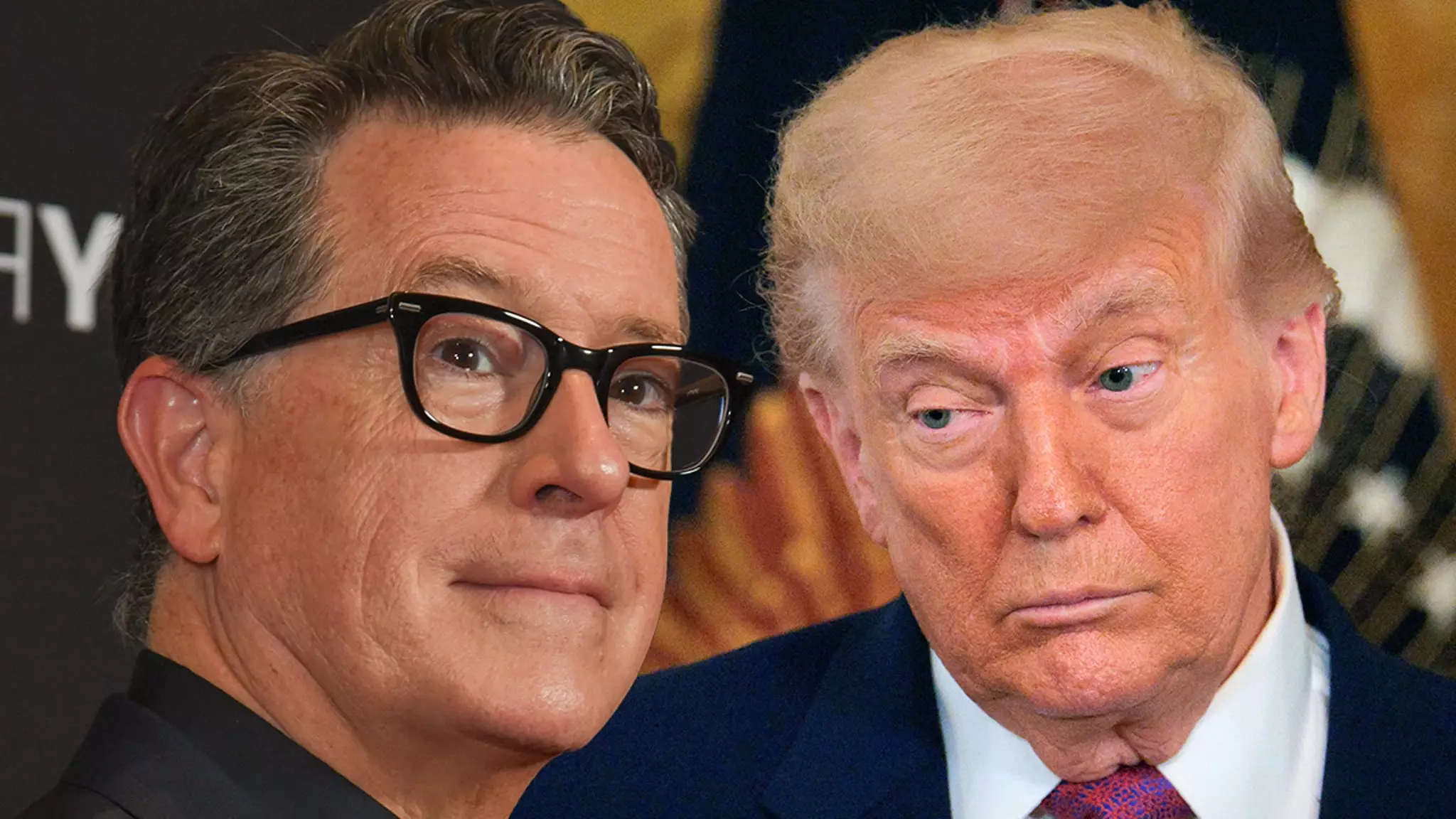In an era where corporate interests and political pressures often drown out genuine dissent, Stephen Colbert’s fiery outburst against Donald Trump exemplifies a rare and admirable stand for integrity. His unabashed critique, delivered with raw emotion and pointed language, underscores a broader issue within the media landscape: the silencing of truth in favor of profit, prestige, or political convenience. Colbert’s willingness to speak candidly—regardless of repercussions—serves as both a warning and an inspiration, illustrating the importance of resilience and fearlessness for content creators who refuse to compromise their voice.
This moment of candidness reflects an underlying crisis in journalism and entertainment: the delicate balance between the need to maintain political neutrality and the moral obligation to challenge injustice. Colbert’s open confrontation with Trump is not mere spectacle; it’s a declaration that certain principles—truth, honesty, and accountability—must be defended at all costs. Too often, influential figures are silenced by the fear of losing advertising dollars, audience ratings, or their professional standing. Colbert’s stance counters this trend, emphasizing that authentic commentary should have no place in a sanitized, corporate-controlled media environment.
Corporate Complicity and the Cost of Courage
The conflict surrounding CBS and “The Late Show” adds another layer to this complex narrative. The network’s decision to end Colbert’s program, allegedly driven by the fallout from a controversial settlement with Donald Trump, hints at a troubling reality: that corporate interests often dictate the boundaries of acceptable discourse. When the network claims that financial reasons are behind the cancellation, yet critics suggest it stems from subdued resistance to the political climate, it exposes how journalistic independence is compromised for monetary gains.
Colbert’s critique of CBS’s parent company, Paramount Global, underscores the uncomfortable truth that few institutions are immune to the influence of money and political expediency. The settlement with Trump, characterized as a “big, fat bribe,” epitomizes how institutional cowardice fosters a culture where truth becomes collateral damage. If media companies subordinate their integrity to the pursuit of profits or appeasement of powerful figures, they betray their fundamental purpose: informing the public and holding power to account. Colbert’s outspoken stance is a reminder that media must remain vessels of truth, even when it’s inconvenient or costly.
Public Loyalty and the Erosion of Independent Voices
The reactions to Colbert’s outspoken criticism reveal a growing divide in public perception. Many supporters, including celebrated comedians and journalists, have expressed their disappointment and solidarity. Their backing speaks to a yearning for authenticity and a recognition that genuine voices like Colbert’s are vital in shaping a healthy democracy. Conversely, critics like Dave Portnoy blame capitalism and corporate greed for the demise of such institutions, portraying the fight for honest discourse as a battleground where profit often trumps principle.
This polarization highlights a critical dilemma: how do media personalities and content creators navigate the treacherous waters of commercialism without sacrificing their integrity? While some argue that entertainment must be apolitical, others contend that silence in the face of oppression is itself a form of complicity. Colbert’s example illustrates that standing up for truth can come with risks—professional, financial, and even personal—but it is an essential act for those committed to the ideals of free speech and transparency.
The Lingering Impact and The Need for Accountability
The fallout surrounding Colbert’s departure and the outspoken reactions in the media landscape serve as a stark reminder that truth and power are often at odds. The current political climate, fueled by figures like Trump, fosters an environment where dissent is met with hostility, and institutions are pressured to conform. In such a context, the role of media personalities becomes even more crucial—they are not merely entertainers but defenders of democracy’s core values.
The challenge remains: how can media outlets and individuals uphold the principles of transparency and resistance when faced with potent economic and political forces? Colbert’s fearless stance demonstrates that sometimes, integrity requires dissent, even if it invites backlash. Society must recognize that safeguarding a free and honest press is a collective obligation, ensuring that power does not become unchecked and that truth retains its place as a pillar of society’s foundation.
By critically examining these developments, we realize that the fight for authentic journalism and honest discourse is ongoing—and it demands courage from every voice willing to stand against the tide of intimidation. Colbert’s example acts as both a warning of what happens when fear takes hold and a beacon of hope for a future where integrity prevails over convenience.

